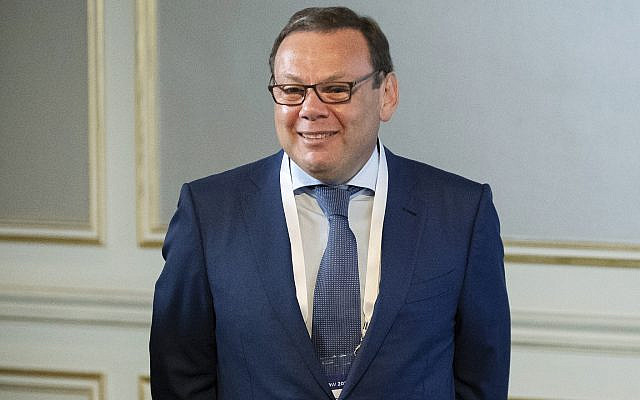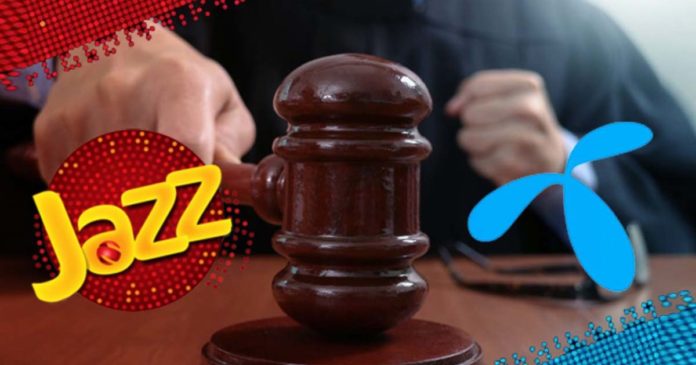The license of Telenor Pakistan and Jazz are due to expire later this month on 25 May 2019. Three days ago, Jazz approached the Islamabad High Court asking for “clarity” on the terms of its licence renewal that it says should be done “in an equitable, fair and transparent way.” By saying this they mean that in their reading the licence stipulates that the telecom operator is entitled to renew it at the same dollar price at which it was acquired. One of the problems with this would be that of deterioration of rupee value as against dollar as well as the change of the dollar value after 15 years. Another complaint of Jazz is that the renewal policy should have been announced by the Pakistan Telecommunication Authority (PTA) long time ago as the renewal application process should have started about 27 months ago. Given the time needed for such an exercise, their complaint is justified, three weeks before expiration of the licence there is hardly any time to act. Another demand of Jazz is that they want the price for the renewal of their licence fixed at the amount that Ufone has paid in 2014. Ufone renewed their license for $291 million after the expiry of 15 year period. This complaint is certainly not justified.
Formed by the merger of Mobilink and Warid in 2015,Jazz is the largest mobile network in Pakistan. It is owned by VimpelCom (now named VEON) a multinational telecommunication services company headquartered in Amsterdam, Netherlands. “With a reputation”, VimpelCom predominantly operates services in the regions of Asia, Africa and Eastern Europe. It is majority-owned by Mikhail Fridman, one of Russia’s wealthiest businessmen, and Telenor, which is majority-owned by the Norwegian government. In fact while they act independently in Pakistan, for all practical purposes they are a monopoly.
Fridman was born in 1964 in Lviv, Ukraine, (than USSR), where he spent his youth of Jewish origin, he is now not a Ukrainian national but holds both Russian and Israeli citizenship. During an interview by the Financial Times Boris Berezovskij named Fridman and Aven as among the seven businessman and bankers who used to control most of the economy and media in Russia and who had helped bankroll Boris Yeltsin’s 1996 re-election campaign. Fridman and Aven sold off most of their Russian government securities in early August 1998, prior to the ruble crisis of 17 August 1998, and emerged relatively unhurt from the 1998 Russian financial crisis.

On 3 March 2015, L1 Energy acquired international oil and gas company DEA, from the German utility RWE, for $7 billion (€5.1 billion). Headquartered in Hamburg, Germany with extensive assets in the British North Sea, Fridman’s Letter One fund invested $200 million in Uber in Feb 2016. Acting as a holding company for the 48 percent stake in VimpelCom owned by Fridman and his partners, L1 Technology Fund also has a 13.2% share in the Turkish telecom company Turkcell, which since 2005 has been hampered by a long-running feud between its three largest shareholders: Cukurova owned by Turkcell founder Mehmet Emin Karamehmet, Fridman’s Letter One via Alfa Telecom/ Altimo, and Sweden’s Telia Company.
VimpelCom was accused of paying more US$ 114.5 million (the papers filed in the US say that it was US$ 350 million) to a “relative” of Karimov between 2006 and 2012 for mobile phone licenses and frequencies. This was detected in March 2014 when VimpelCom Company Headquarters in Amsterdam were raided by the Dutch authorities, including the Dutch Public Prosecution Service, Openbaar Ministerie (OM), obtaining documents about the companies illegal operations in Uzbekistan, they informed VimpelCom it was under investigation for dishonest conduct and paying bribes allegedly to Gulnara Karimova, the daughter of Uzbek president Islam Karimov. The business advantage obtained amounted to US$ 2.5 billion revenue generation in Uzbekistan, a country with a population of only slightly over 32 million (one-seventh of Pakistan’s 200 million plus) according to World Bank (2017).
On 18 February 2016, VimpelCom announced its settlements with the US and Dutch authorities. Under the terms of its resolution with the SEC, VimpelCom agreed to a total of USD 375 million in disgorgement of profits and prejudgment interests, to be divided between the SEC and OM and agreed to pay the OM a criminal penalty of USD 230,163.199.20 for a total criminal penalty of USD 460,326,398.40, and a total resolution amount of more than USD 835 million. The DOJ agreed to credit the criminal penalty paid to the OM as part of its agreement with VimpelCom and the SEC agreed to credit the forfeiture paid to the DOJ as part of its agreement with VimpelCom. As result, VimpelCom will pay fines and disgorgements to the US and Dutch authorities in an aggregated amount of USD 795 million. In addition, VimpelCom agreed to retain an independent compliance monitor for at least three years. This scandal besmirched their reputation in the corporate world which was not conducive to their brand name and business. To disconnect their name from the corruption case in 2017, the company was renamed VEON.

VimpelCom (VEON) group owns Jazz which is requiring the renewal of the Jazz licence in Pakistan that is due later this month. The licence had been issued for Rs16.8 billion ($ 291 million) in 2004 and is now worth Rs41.4 billion ($ 291 million). An article in Dawn two days ago mentioned that the amount that the PTA is thinking about demanding for the renewal, though the demand has not been officially communicated to Jazz, is USD 450 million. That should be a much less than the price that should be asked given the fact that VimpelCom/ Veon was willing to pay around US$ 350 dollars in only bribes alone in Uzbekistan (that much could be established with more undetected) a market that is seven times the size of Pakistan population-wise. Another argument could be that since then Jazz has incorporated Warid in 2015 and their customers. Ufone alone paid 291 million dollars and that was five years ago!
The cost of the spectrum must go up substantially since the last license 15 years ago and (1) total population of Pak has increased by 50 million (2) target coverage which was 1/20th of country and it is now 100% covered (3) telecom industry had mere 5 million subscribers, and now it has over 140+ million customers (4) Spectrum prices are generally higher when the economies are in high sovereign debt and limited access to financial markets. High proceeds from spectrum assignments increase public funds to help ease short-term public sector fiscal pressures (5) Spectrum assignments are often seen as a simpler way to raise additional revenues than introducing or raising taxes (6) Given that spectrum prices are unlikely to determine government debt, the more plausible interpretation is that governments in developing countries experiencing financial challenges are using spectrum assignments to increase public sector revenues.
Both Jazz and Telenor in Pakistan have almost 100% Pakistanis in their rank and file. This is a very competent and talented lot who have locally made good profits for their parent foreign companies. That is at it should be! After all their companies have made good investment on Pakistan based on tremendous risks, especially given the law and order at that time. However if push comes to shove, than the inherent patriotism in them should not allow their foreign owners to put their commercial interests over that of the national interests of Pakistan.
Because the matter is in the court this might delay and complicate things more. Time is running out and if Jazz is unable to uphold its service after 25 May it will lose money, customers and image in Pakistan, Veon is traded on the stock exchange as well and shareholders have to be informed beforehand when a slump in profits is anticipated. It should be in Jazz’s best interest to settle the matter fast, why should money be a hindrance to them? Unless off course some Pakistani “Gulnara” is being difficult in coming to terms for the amount to be paid as a bribe?




